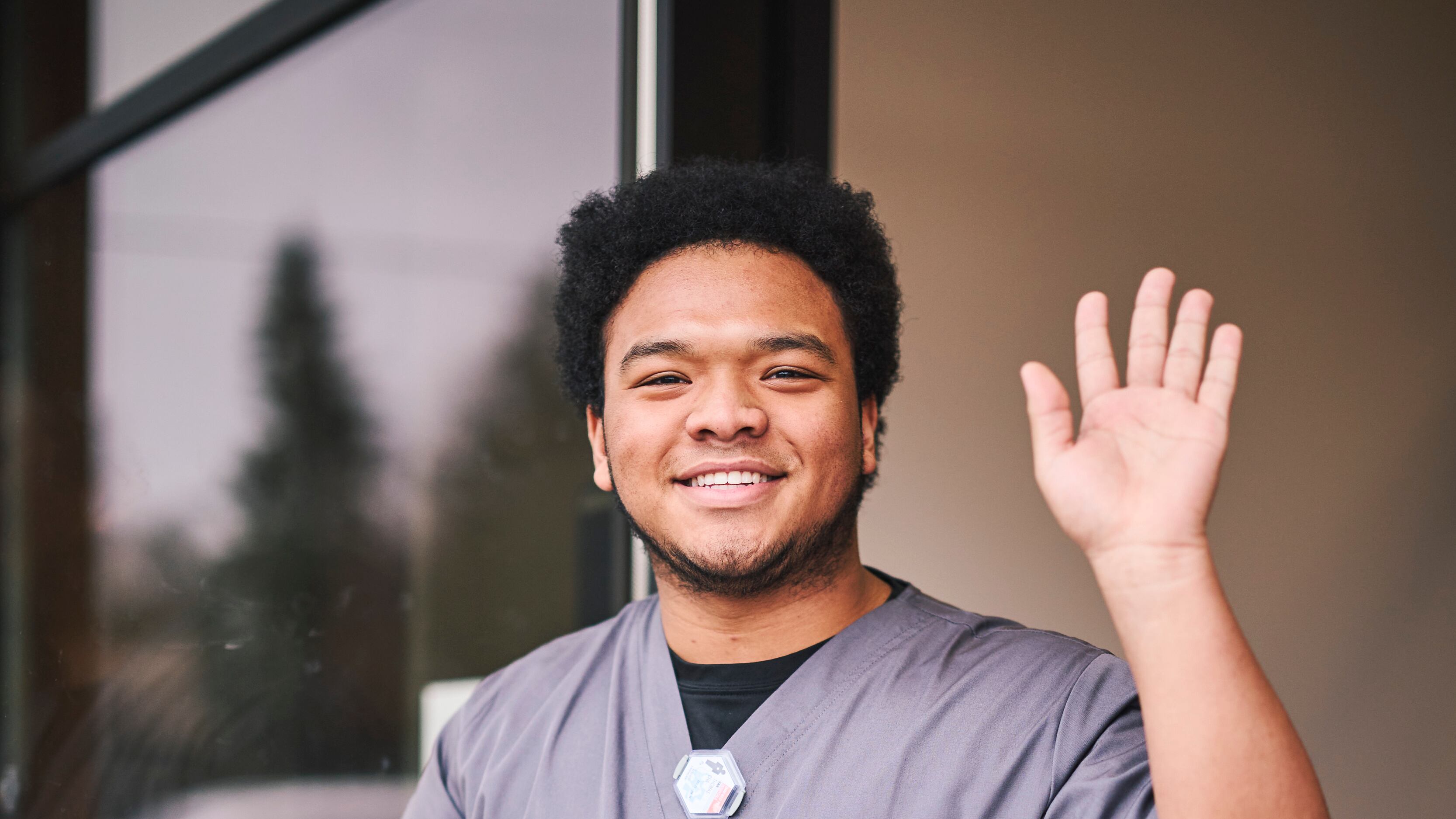Thomas Cha always knew he wanted to be a veterinarian. Even his parents say he aspired to be a vet, ever since he was young. Growing up, Cha had goldfish at home, and he remembers always being surrounded by dogs whenever he was with his aunts, uncles and grandparents.
“There’s just never been an instance where I didn’t want to become a vet,” Cha says. “That’s really the only career path I ever thought of.”
So, when his Vancouver, Wash., high school counselor told him about an internship opportunity through Banfield Pet Hospital, he knew it was a perfect match.
As soon as he graduated from Henrietta Lacks Health and Bioscience High School in 2022, Cha started in the NextVet internship program—a paid, two-month internship for pet-loving high schoolers and graduates.
The program was created in 2022 in an effort to address a chronic shortage of talent entering the field of veterinary care. Research paid for by Mars Veterinary Health—a network of 2,500 clinics, hospitals and labs that includes Banfield among its members—shows that the need for veterinary care is expected to increase by 33% by the year 2030.
This widens an already persistent gap that will require nearly 41,000 additional caregivers by 2030 in order to keep up with demand. Even with the new veterinary graduates expected over the next decade, the study found that there will still be a shortage of nearly 15,000 veterinarians in that time frame.
NextVet connects students aged 16 and older with Banfield hospital teams, and gives them a flexible, part-time summer position offering hands-on experience in a veterinary hospital. Payment varies by location but starts at $15 an hour.
“It’s a fast-paced environment, but it’s a great learning environment as well,” Cha says. “I got to learn how to put in a catheter, I drew up vaccines and learned how to hold dogs and cats. It’s just been a great learning experience.”
The first year, 15 students had the opportunity to participate in the NextVet internship, and in 2023, its second year, the program has nearly doubled in size. More than 1,000 Banfield hospitals operate nationwide, and hospitals in 16 cities are participating in the program this summer, including locations in the Portland-Vancouver area.
Cha says before the internship, most of his experience with vets was through what he saw on television, but experiencing the hospital firsthand has made him appreciate the details more.
“You get to learn what patients are going through and learn more of the process,” he says.
Interns spend most of their time shadowing and working with veterinarians and credentialed veterinary technicians, as well as some virtual small group sessions intended to help them explore the industry.
“There’s a little bit of studying, but it’s more on the job,” Cha says. “You shadow them, and then when you feel comfortable, then you can help them actually do it. You always have a mentor to help you if you ever have questions.”
According to NextVet, several interns from the inaugural year have continued their work with Banfield full time. Cha returned to the hospital as a pet care assistant just two months after his internship finished.
Cha says working in the hospital has been rewarding. “It’s such a unique experience that not a lot of people get the opportunity to do,” he says. “I just got to learn so much about medicine. Not a lot of kids get the opportunity to do that straight out of high school.”
Asked what impact he hopes to have on the wider community, Cha answers with a genuine care for the people he interacts with: “The mental health of the owner. Pets bring owners so much joy and so much happiness, but when their pet is sick, they’re worried. So, when they come in here, we try to give them comfort that we’re going to give them the best care possible.”
Cha enjoys being able to see client’s pets grow up over time. One of his favorite dogs started coming in as a puppy. “We saw it when it was this little, and now it’s grown so much,” he says. “We get to see it grow. That’s so fun.”
